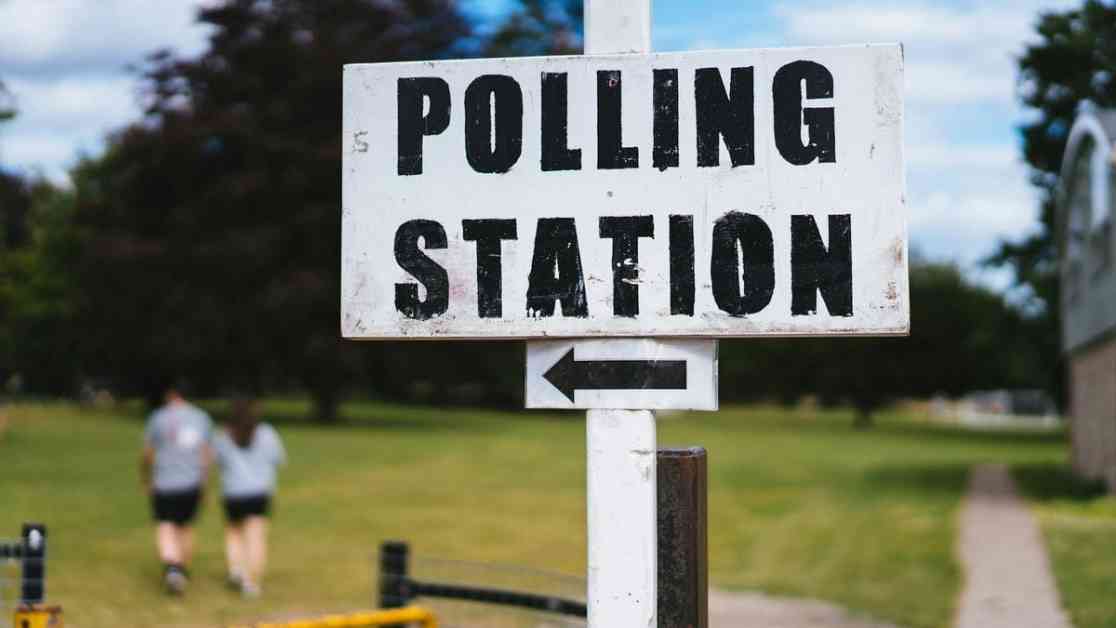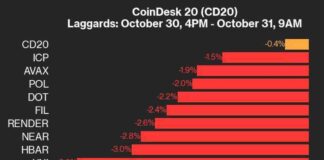Former U.S. President Donald Trump’s engagement with the cryptocurrency industry appears to be gaining him support, as indicated by the results of a recent poll conducted by Fairleigh Dickinson University. The survey, released on Friday, revealed that individuals who hold cryptocurrencies are more inclined to vote for Trump in the upcoming presidential election compared to Vice President Kamala Harris. The data showed that 50% of crypto-holding respondents expressed their intention to vote for Trump, while only 38% favored Harris. On the other hand, among non-crypto owners, Harris had a lead of 12 points, with 53% of respondents who have never owned cryptocurrencies indicating their support for her compared to 41% for Trump.
Dan Cassino, a professor of Government and Politics at Fairleigh Dickinson University and the executive director of the poll, commented on the findings in a press release, stating, “Trump has been reaching out to the crypto community, and it seems to have paid off. It might be easy to dismiss them as insignificant, but I don’t think people realize exactly how widespread crypto ownership is.”
The poll, which gathered responses from over 800 registered voters across the nation earlier this month, highlighted that 15% of the respondents reported owning or having owned cryptocurrencies or non-fungible tokens (NFTs). This percentage aligns with similar findings from recent surveys, indicating a growing interest in cryptocurrencies among the general population.
The data also revealed that crypto owners tend to be predominantly young men and members of racial minority groups. While 13% of White voters reported owning crypto, the figures were higher among Black voters at 17% and Hispanic voters at 22%. Cassino noted, “Support for cryptocurrencies is very much a wedge issue that could win over voters that otherwise look more like Democrats.”
The cryptocurrency industry has been actively involved in political contributions during this election cycle, with a substantial portion coming from companies within the sector. A study found that nearly half of all corporate contributions to political action committees (PACs) this year originated from crypto companies such as Coinbase and Ripple. Coinbase, in particular, emerged as the top corporate spender in the 2024 cycle.
In light of the increased political engagement from the crypto industry, it is evident that the sector is garnering attention and influence in the realm of politics. With significant contributions being made to PACs and campaigns, the industry is positioning itself as a player in shaping policies and regulations that could impact its future growth and development.
The intersection of cryptocurrency and politics has become a focal point of discussion as the industry continues to expand and evolve. The influence of crypto holders in shaping political outcomes is a testament to the growing significance of digital assets in contemporary society. As more individuals become involved in the crypto space, their preferences and opinions are likely to have an impact on political decisions and policies.
The Rise of Cryptocurrency in Politics
Cryptocurrency has emerged as a significant player in the political landscape, with its influence extending beyond the realms of finance and technology. The increasing adoption of digital assets has led to a growing number of individuals holding cryptocurrencies, thereby creating a new demographic that politicians are seeking to engage with. As seen in the Fairleigh Dickinson University poll, the preferences of crypto owners can sway election outcomes, making them a valuable target for political campaigns.
The rise of cryptocurrency in politics can be attributed to several factors, including the decentralized nature of digital assets, the potential for financial innovation, and the desire for economic empowerment. Cryptocurrency holders often view themselves as early adopters of a transformative technology, leading them to seek candidates who support policies that foster innovation and growth in the sector. This alignment of interests has paved the way for crypto-friendly politicians to gain traction among this demographic.
The Impact of Crypto Contributions on Political Campaigns
The influx of political contributions from the cryptocurrency industry has reshaped the landscape of political campaigns, as candidates seek to court the support of crypto companies and investors. With companies like Coinbase and Ripple making substantial contributions to PACs and campaigns, the industry has become a significant player in funding political activities. This financial backing has enabled crypto-friendly candidates to amplify their messages and reach a broader audience, ultimately influencing voter behavior.
The impact of crypto contributions on political campaigns extends beyond financial support, as it also underscores the industry’s growing influence in shaping policies and regulations. By backing candidates who advocate for crypto-friendly policies, companies within the sector are positioning themselves to have a say in the development of regulations that could impact their operations. This strategic engagement with politics reflects the industry’s proactive approach to safeguarding its interests and fostering a favorable regulatory environment.
The Future of Cryptocurrency in Politics
As cryptocurrency continues to gain traction in mainstream society, its role in politics is likely to expand, shaping electoral outcomes and policy decisions. The preferences of crypto holders are becoming increasingly relevant in political campaigns, prompting candidates to tailor their messages and policies to resonate with this demographic. The intersection of cryptocurrency and politics presents new opportunities for engagement and collaboration, as the industry seeks to influence the development of regulations and policies that support its growth.
Looking ahead, the future of cryptocurrency in politics holds immense potential for innovation and change. By leveraging their influence and resources, crypto holders and companies can drive meaningful discussions and decisions that impact the sector’s trajectory. As the industry continues to evolve, its impact on politics is expected to grow, leading to a more dynamic and interconnected relationship between digital assets and governance.
In conclusion, the findings of the Fairleigh Dickinson University poll underscore the growing influence of cryptocurrency in politics and its potential to shape electoral outcomes. With crypto holders expressing their preferences for candidates who support the industry, politicians are increasingly recognizing the importance of engaging with this demographic. As the cryptocurrency industry continues to expand and evolve, its impact on politics is expected to deepen, paving the way for a more integrated and collaborative relationship between digital assets and political decision-making.

















